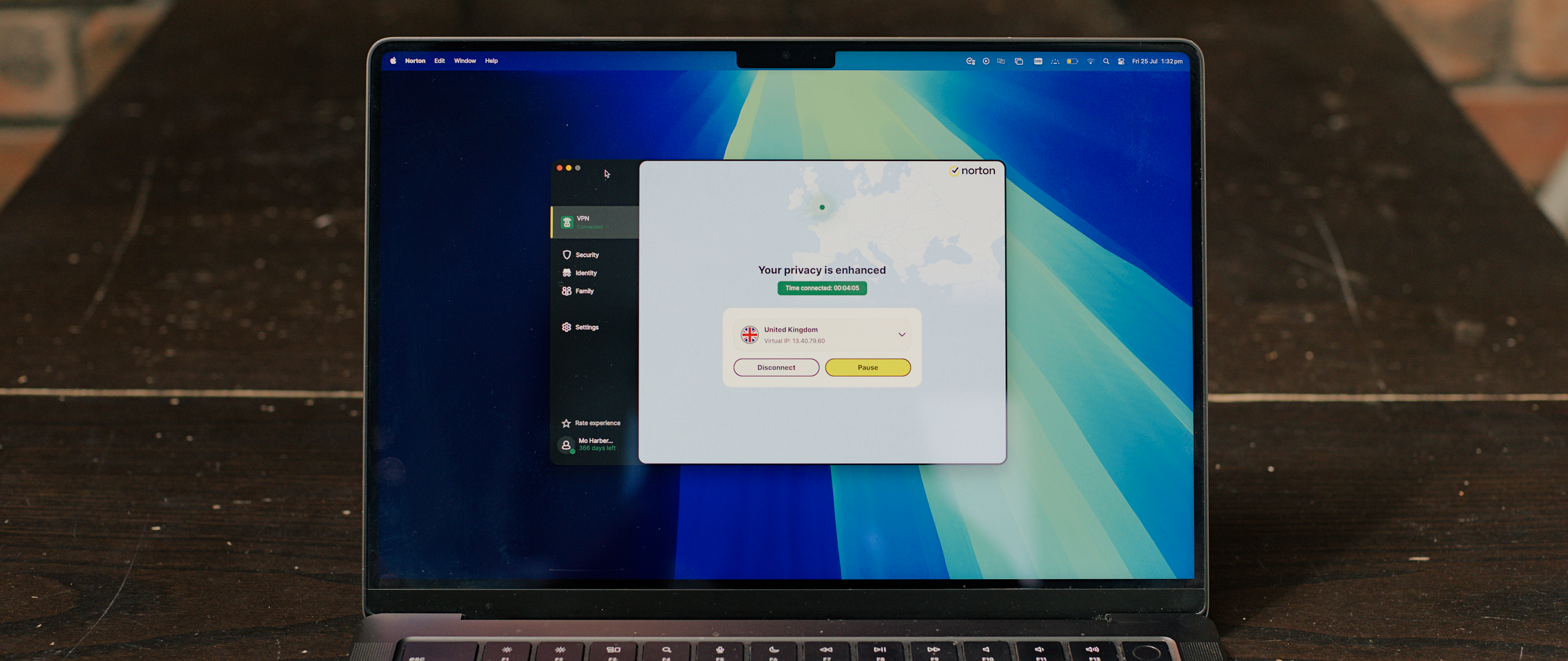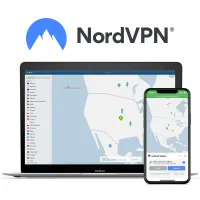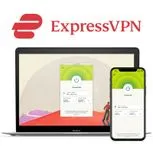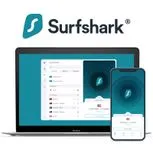Tom's Guide Verdict
Norton’s VPN used to be an afterthought, but the rebranded package offers solid security, easy-to-use apps, and fast connections for browsing, streaming, torrenting, and gaming. There's plenty of room for improvement with some weaknesses in streaming support and with the iOS and Mac apps, but it's a great start.
Pros
- +
VPN includes auto-connect
- +
Supports IP rotation and multi-hop
- +
60–day money-back guarantee
- +
Fast connection speeds
- +
Audited no-logs policy and transparency report
Cons
- -
Mac and iOS apps lack some features
- -
No WireGuard or OpenVPN on Mac
- -
Minor streaming issues
- -
Usage limited by devices rather than connections
- -
Apps and pop-ups can be slightly intrusive
Why you can trust Tom's Guide
Norton VPN is the new VPN from the 40-year-old Norton Antivirus brand. The security giant is part of the Gen Digital group, which also owns Avast, Avira, AVG, CCleaner, and LifeLock.
Norton’s previous VPN product, Norton Secure VPN, was fairly weak, with slow connection speeds and a small server network, but it is still included as an add-on with antivirus packages.
Norton VPN should not be confused with this, however. The company has demonstrated a serious commitment to creating a serious contender to the best VPNs, with an audited no-logs policy, a growing global server network, and high-speed connections.
Starting at $2.49 per month, its two-year plan sits in a similar range to leading providers like Surfshark, and is a fair bit cheaper than NordVPN or ExpressVPN. Norton VPN previously offered one-year plans only and a switch to two-year plans is very welcome.
I’ve thoroughly tested Norton VPN’s apps across Windows, Mac, Android, and iOS, and taken stock of the product’s security, connection speeds, and ability to bypass geo-restrictions. There are a fair few things Norton can improve on, but it’s a fast, secure VPN. With many more features and improvements in development, it looks like the only way is up for Norton VPN.
Norton VPN on paper
Number of servers | 3,400+ |
Server countries | 111 locations in 67 countries |
Supported platforms | Windows, Mac, Android, iOS, Apple TV, Google TV, Chrome, Firefox and Edge |
Simultaneous connections | 10-20, depending on plan |
Protocols supported | WireGuard (not on Mac), OpenVPN (not on Mac or iOS), Mimic (all platforms), IPSec (not on Windows or Android) |
Country of registration | USA / Czechia |
Support | Support site, community forum, 24/7 live chat, 24/7 phone support |
Lowest monthly price | $2.49 per month |
Browse our VPN glossary for a quick explanation of any VPN jargon.
Norton VPN's latest features and updates
- Two-year plans launched in January 2026
- New server locations plus expansion of P2P and 25 Gbps servers in December 2025
- Mimic protocol completes its first third-party audit in December 2025
- Norton VPN publishes results of second no-logs audit in October 2025
- OpenVPN DCO released in September 2025
- IP Rotation and Double VPN added as full features and kill switch and Mimic support added for iOS in June 2025
Norton VPN review: pricing and plans (USD)
Subscription tier | 2-year price | 1-year price | Renewal price |
|---|---|---|---|
Norton VPN Standard | $2.49 per month ($59.76) | $4.49 per month ($53.88) | $8.33 per month ($99.99, 12 months) |
Norton VPN Plus | $3.49 per month ($83.76) | $5.49 per month ($65.88) | $9.99 per month ($119.99, 12 months) |
Norton VPN Ultimate | $4.49 per month ($107.76) | $6.49 per month ($77.88) | $12.49 per month ($149.99, 12 months) |
Norton VPN began to offer two-year plans in January 2026. This saw lower monthly costs and an increase in the number of devices supported on one plan.
The Norton VPN Standard plan costs $2.49 per month – $59.76 upfront – for two years and includes all the VPN’s core features for 10 devices, as well as an ad blocker.
Norton VPN Plus also covers 10 devices in every region, adds AI-powered scam protection, a password manager, dark web monitoring (letting you know if your details have appeared in data breaches), and 10GB of secure cloud backups. A two-year plan costs $3.49 per month ($83.76 upfront).
The top-tier Norton VPN Ultimate plan – $4.49 per month ($107.76 upfront) – covers 20 devices, includes 50GB of secure storage, and adds parental control tools.
Something to be aware of is that Norton VPN measures your usage by devices. This is different to most other VPNs which allow you to install the application on as many devices as you like, and restrict how many connections you can have running at once.
This means that if you hit your limit – be it 10 or 20 devices depending on your plan – you'll need to permanently remove one to add another from the dashboard on the Norton website. This is the same way that antivirus subscriptions are restricted, so it's unsurprising to see Norton do the same with its VPN. However, it's a small quality-of-life issue I'd like to see changed to match the competition.
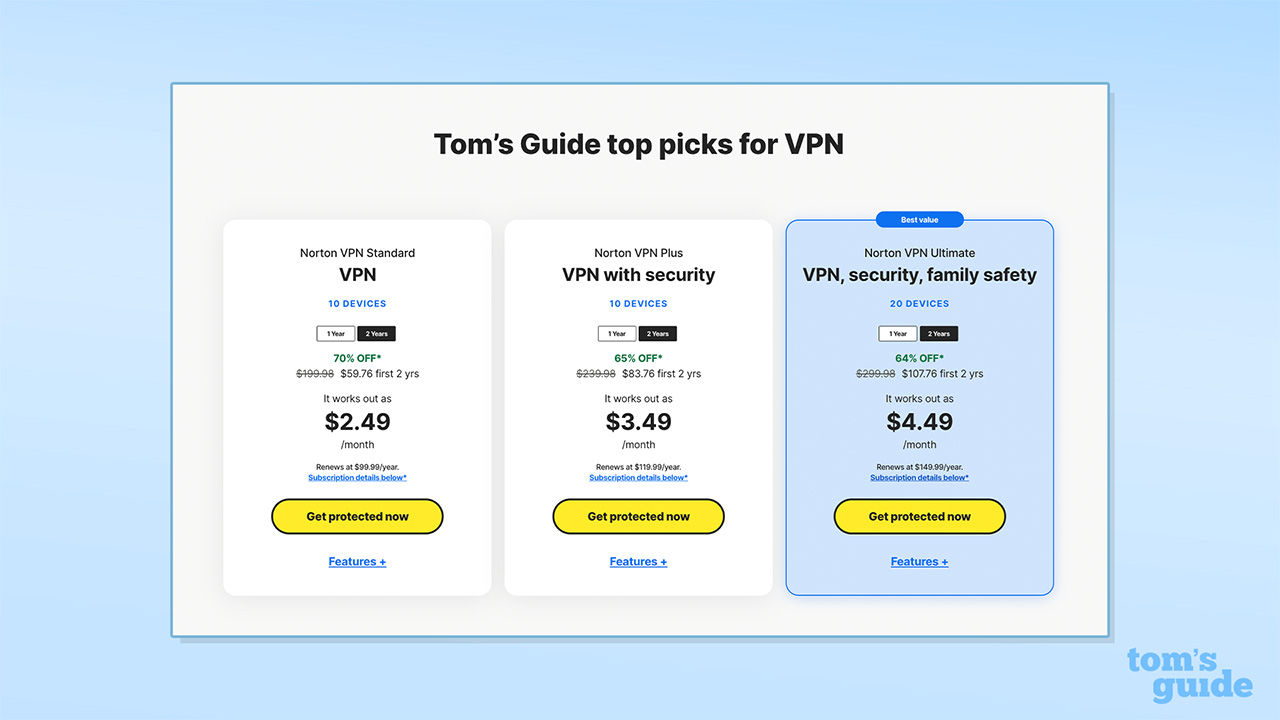
The switch to offering two-year plans is a big move from Norton VPN and sees the company match its VPN rivals. Its price now becomes very competitive, with Surfshark the only VPN starting at a cheaper price. Norton VPN Plus is similarly priced to NordVPN, ExpressVPN, and Proton VPN – and its feature offering can go toe-to-toe with these bigger names.
Norton VPN still offers one-year plans. These cost less upfront but their long-term value is not as good as the two-year plans. Prices do increase on renewal, paid annually. But these are clearly stated by Norton VPN and increases aren't as significant as some other VPNs.
An excellent 60-day money-back guarantee and a 7-day free trial is provided for all plans. That said, for a paid product, Norton VPN is fairly aggressive with upselling and places a link to its Store page immediately below the VPN in its app's left sidebar (which only has three other items).
Payments are supported via credit card, PayPal, and Google Pay, though there are no options to pay with cryptocurrency.
Provider/plan | Cheapest monthly price (2-year plan) | Overall price |
|---|---|---|
Norton VPN Standard | $2.49 | $59.76 |
NordVPN Basic | $3.39 | $81.36 (plus tax) |
Surfshark Starter | $1.99 | $53.73 (plus tax) |
ExpressVPN Basic | $2.79* (current sale) | $78.18 |
Proton VPN | $2.99* (current sale) | $71.76 |
Private Internet Access | $2.03 | $56.94 |
This pricing makes Norton VPN the third cheapest VPN on this list, behind Surfshark and PIA. Its speeds are far superior to PIA and it just edges Surfshark in terms of streaming unblocking. However these two VPNs have unlimited device connections.
Norton VPN Plus is cheaper than its NordVPN Plus and ExpressVPN Advanced equivalents. Although these two providers have more features than Norton VPN, including more server locations and a greater number of protocols supported.
Norton does deserve credit for its pricing transparency, though, and makes the renewal price clear.
Rating: 7/10
Does Norton VPN have a free trial?
Unlike most other VPNs, Norton offers a 7-day free trial for all its VPN plans and includes access for desktop, iOS, and Android. You do need to create an account and enter payment details to access the trial.
Norton VPN review: features
The table below compares Norton VPN's key app features across the major operating systems:
Feature | Windows | macOS | Android | iOS |
|---|---|---|---|---|
Protocols | WireGuard, OpenVPN, Mimic | IPSec, Mimic | WireGuard, OpenVPN, Mimic | WireGuard, IPSec, Mimic |
Kill switch | Yes | Yes | Yes | Yes |
Split tunneling | Yes (blacklist) | No | Yes (blacklist) | No |
Obfuscation | Yes (Mimic protocol) | Yes (Mimic protocol) | Yes (Mimic protocol) | Yes (Mimic protocol) |
Auto-connect | Yes (unsecured Wi-Fi + P2P app launch) | Yes (unsecured Wi-Fi) | Yes (unsecured networks) | Yes (unsecured Wi-Fi) |
Multi-hop | Yes | Yes | Yes | Yes |
Malware + browser protection | Ad blocker (browser extension) | Ad blocker (browser extension) | No | No |
Torrenting + P2P support | Yes (limited) | Yes (limited) | Yes (limited) | Yes (limited) |
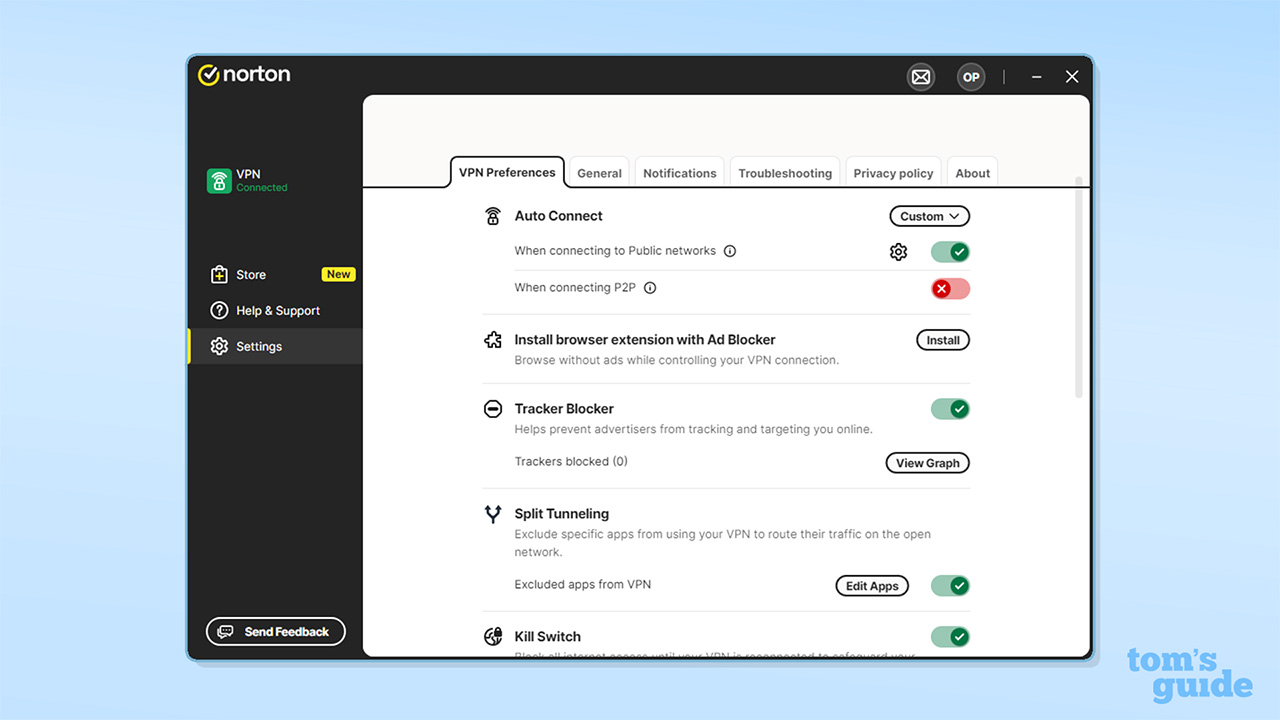
Norton VPN offers all the core features you need to secure your connection. The VPN’s apps support the WireGuard, OpenVPN, and IPSec protocols, and also the proprietary Mimic stealth protocol, which hides the fact that you’re using a VPN. Norton reports that Mimic greatly increases the chances of bypassing detection, and sees a 92% success ratio for Mimic in countries like Egypt, where other protocols often fail.
At present, OpenVPN is only available for Windows and Android. WireGuard is supported on all platforms except Mac and tvOS, having recently come to iOS.
This is a drawback for Apple users, but there are reportedly plans to add WireGuard on Mac and tvOS in the near future, which will be a very positive addition.
OpenVPN support currently only covers UDP ports. Using OpenVPN with TCP isn’t as fast, but it is more reliable, and the company is reportedly planning to add the setting for Windows, with Android support following.
Here is Norton VPN’s current protocol support by platform:
Protocol | Windows | Mac | Android | iOS |
|---|---|---|---|---|
WireGuard | ✅ | ⛔ | ✅ | ✅ |
OpenVPN | ✅ | ⛔ | ✅ | ⛔ |
Mimic | ✅ | ✅ | ✅ | ✅ |
IPSec | ⛔ | ✅ | ⛔ | ✅ |
Norton VPN’s kill switch, which stops your internet if the VPN disconnects, is available on desktop and mobile, and the feature performed very well in my testing.
I took a number of steps (including changing the VPN location, restarting the router, stopping key Norton processes, and disabling Norton’s network adapter), but it made no difference. The app killed my internet connection, detected and (where possible) fixed the issue, reconnected, and got the VPN up and running again.
Helpfully, Norton VPN also has an auto-connect feature for desktop and mobile. The implementation is slightly different for each device type, but all apps include the ability to auto-connect when accessing unsecured Wi-Fi networks. Windows users also get the extra option to auto-connect when launching a supported P2P app.
Confusingly, the apps use slightly different terminology for their settings, which may make you question whether they work in precisely the same way. For example, the Android app refers to “Trusted” safe networks, while other apps refer to “Private” networks.
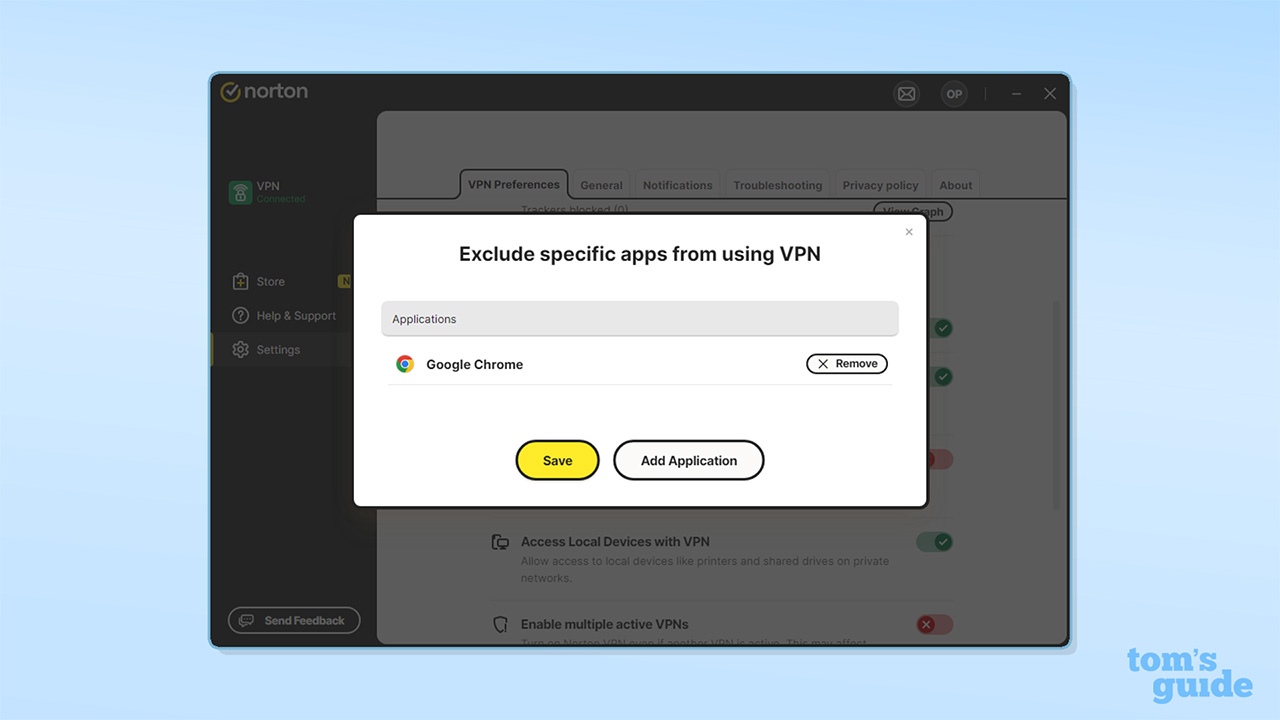
Currently, split tunneling is only available for Windows and Android. This isn’t unique, but it doesn’t match Surfshark, which also supports split tunneling on Mac and iOS. The feature allows you to create a list of apps that can bypass the VPN to access the internet directly. This is useful if you want to access a local streaming service while torrenting, for example, or you want a full-speed connection for gaming.
The feature worked as expected in my testing, and it’s easy to find in Norton’s settings menus. It also worked well when I put it against more unusual scenarios. For example, when I triggered the kill switch by forcing the VPN to close, apps on the split tunneling exclude list continued to work as normal.
That said, Norton VPN's split tunneling isn’t as flexible as that offered by some competitors. ExpressVPN and Windscribe both allow you to build "include" and "exclude" lists, choosing whether to only allow specified apps to use the VPN or whether selected apps should bypass it. In addition, some providers allow you to split tunnel by IP addresses and host names, giving you further control. Norton VPN, on the other hand, only allows you to exclude selected apps from the VPN.
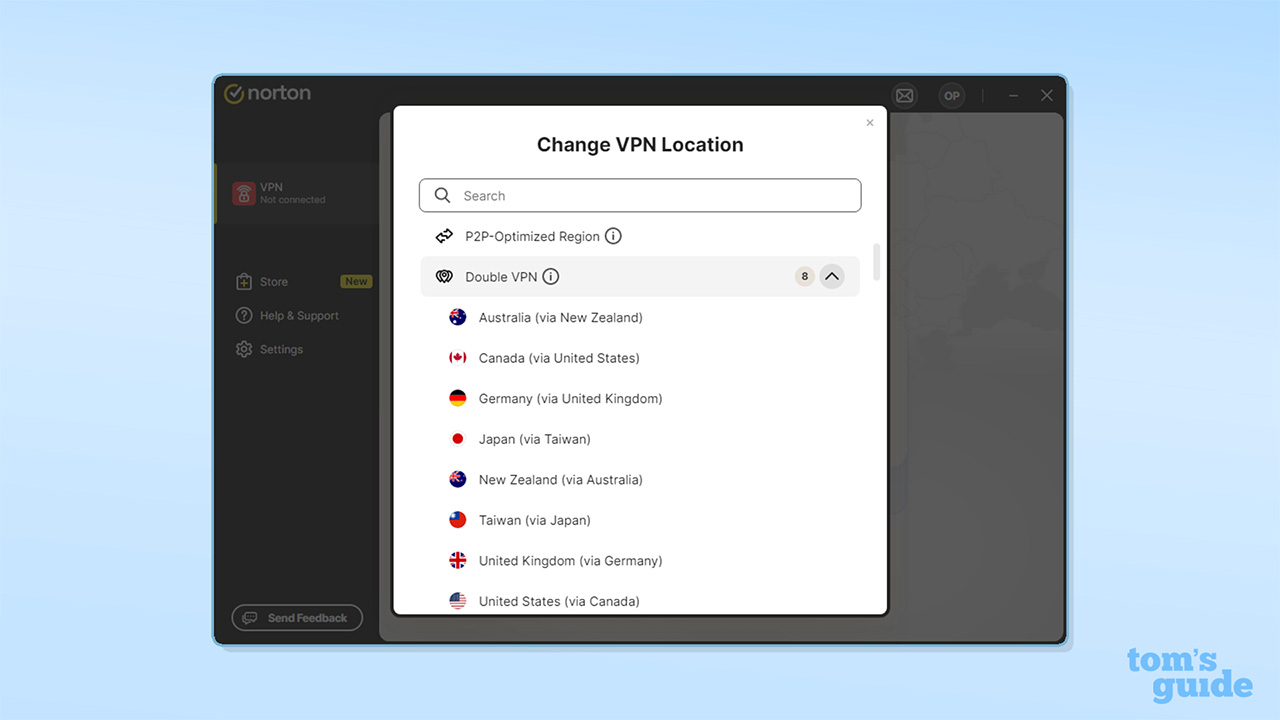
In a positive addition, Norton VPN has recently added support for Multi-Hop connections, giving you extra security by passing your data through a second VPN server (though at the cost of connection speed). Norton offers four predefined Double VPN routes, with each pairing running in two directions.
While it’s great to see this feature, it’s fairly inflexible. In contrast, Surfshark allows you to create your own multi-hop routes using any of its server locations.
Norton VPN’s IP Rotation is another advanced security feature. This regularly changes your virtual IP address, without disconnecting, making it more difficult for you to be tracked online. I found Norton updates the IP every few seconds, which is enough to confuse most tracking attempts. The VPN only supports IP Rotation for six locations, though. This is significantly more restrictive than competitors like ExpressVPN, which includes the functionality for all its locations.
Norton VPN also includes a Tracker Blocker, which can help thwart attempts to track and target you online. The settings menu includes a chart indicating the number of trackers the app has blocked, which is updated on a daily basis.
Feature | Norton VPN Standard | Norton VPN Plus | Norton VPN Ultimate |
|---|---|---|---|
Unlimited VPN | ✅ | ✅ | ✅ |
Ad blocker | ✅ | ✅ | ✅ |
Tracker blocker | ✅ | ✅ | ✅ |
Malware protection | ⛔ | ✅ | ✅ |
Password manager | ⛔ | ✅ | ✅ |
Dark web monitoring | ⛔ | ✅ | ✅ |
Secure cloud storage | ⛔ | ✅ (10GB) | ✅ (50GB) |
Parental control tools | ⛔ | ⛔ | ✅ |
The VPN offers several additional features with its medium and top-tier subscriptions.
Norton VPN Plus adds malware protection features and includes the company’s Virus Protection Promise, committing to a refund if Norton support can’t remove a virus from your system.
In addition, you get dark web monitoring (alerting you if your details have been posted online following a data breach) and 10GB of secure cloud storage. Norton also lists its password manager on the feature list, though it’s worth noting that this is available for free. It’s likely included to match NordVPN’s offering, and both NordVPN and Surfshark also provide antivirus-like tools and data breach monitoring features with their mid-tier plans.
The top Norton VPN plan, Norton VPN Ultimate, allows you to protect 20 devices, increases your cloud storage capacity to 50GB, and adds parental control features, allowing you to control screen time, block content, and track mobile device locations.
Parental controls don’t seem like a particularly obvious draw for VPN users, but coverage for 10 additional devices plus improved cloud storage for an additional $1 per month is a notable benefit. In comparison, Surfshark adds online data removal service Incogni with its top-tier plan (with unlimited connections included as standard), while NordVPN offers an impressive 1TB of cloud storage and online identity protection tools and identity theft insurance.
Score: 8.5/10
Norton VPN review: server network
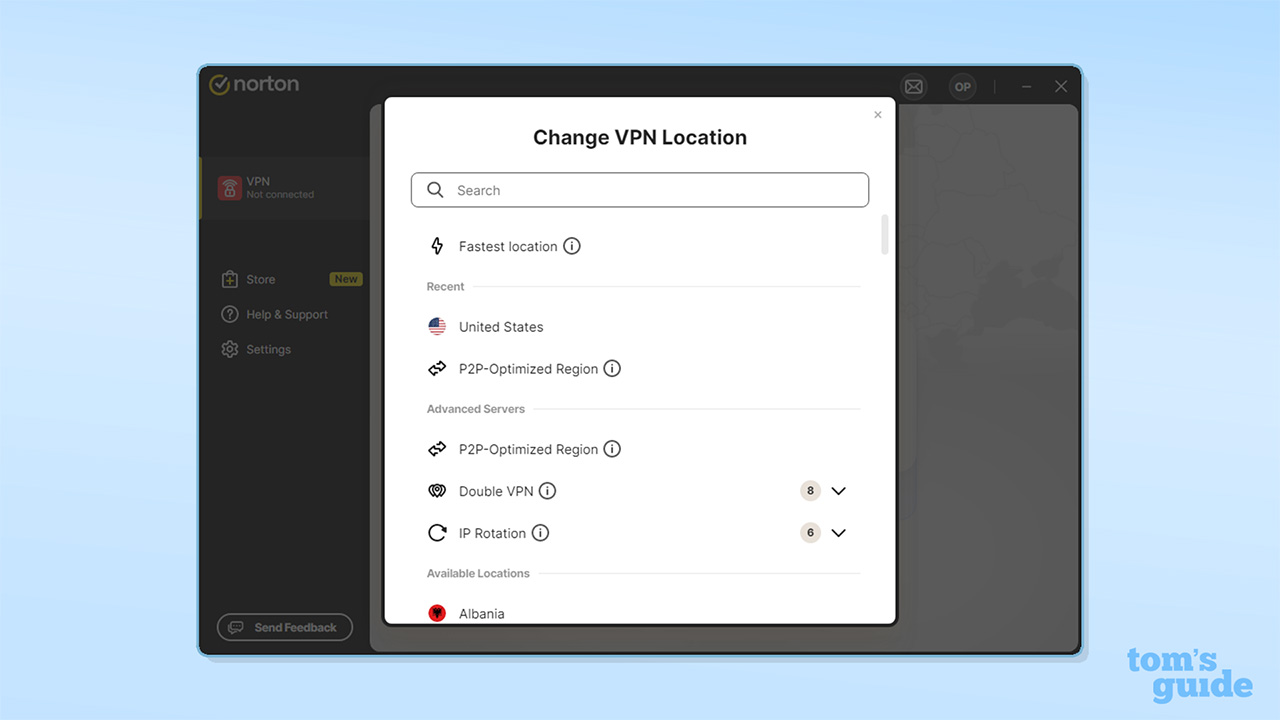
Norton VPN has a network of around 3,400 servers, with 111 locations spread over 67 countries. Support is particularly strong for the US and Europe, which account for 77 of the 111 locations. 27 cities are covered in the US, meaning you shouldn’t have trouble finding a server close to your location.
You can also pick a P2P-optimized local server, IP Rotation options for specific geos (making you harder to track), and from a selection of Double VPN pairings (running your data through a second VPN server).
Only 12 countries in Asia are supported, which is a little weak, though this covers the most popular locations. Servers are offered in 11 countries across South America, Africa, and the Middle East.
While Norton VPN covers most major locations, its server spread is considerably less than industry leaders like NordVPN, ExpressVPN, and Proton VPN, who all offer more than 160 locations worldwide.
Continent | Countries | Locations |
|---|---|---|
Europe | 37 | 50 |
Americas | 11 | 40 |
Asia Pacific | 15 | 17 |
Africa + Middle East | 4 | 4 |
On its website, Norton VPN says every server is a physical server, apart from India. We tested 20 locations and found 14 matched their geographic description. Where I found discrepancies between my testing data and cited locations, these matched general industry patterns.
Depending on your location, connecting to sevrers hosted in another country may provide a benefit. For example, US users connecting to a Costa Rica server, which is physically hosted in Miami, will likely get much faster connection speeds than they would otherwise.
Rating: 8.5/10
Is Norton VPN good for streaming and unblocking?
The table below outlines Norton VPN's results in my streaming unblocking tests.
Green (✅) indicates the streaming service was unblocked, first time, every time.
Yellow (⚠️) indicates the streaming service was unblocked, but we faced some difficulties.
Red (⛔️) indicates we were unable to access the streaming service.
Read how I test streaming VPNs for more detail.
Streaming site | Unblocked | Notes |
|---|---|---|
Netflix | ✅ | Unblocked libraries for US, UK, AU, CA, JP |
Amazon Prime Video | ⛔ | Failed to unblock but other VPNs also failed |
Disney+ | ✅ | No issues found |
YouTube US | ⛔ | Failed a specific, difficult test (protected content, not logged in) |
BBC iPlayer | ✅ | UK-based service, no issues found |
ITV | ✅ | UK-based service, no issues found |
Channel 4 | ✅ | UK-based service, no issues found |
7plus | ✅ | Australia-based service, no issues found |
9Now | ✅ | Australia-based service, no issues found |
TVNZ+ | ✅ | New Zealand-based service, no issues found |
In my testing, Norton VPN performed very well for unblocking both international and local streaming services. It doesn’t quite match NordVPN, which we rate as the best streaming VPN, but it’s not far behind, and it’s comparable to Surfshark and ExpressVPN.
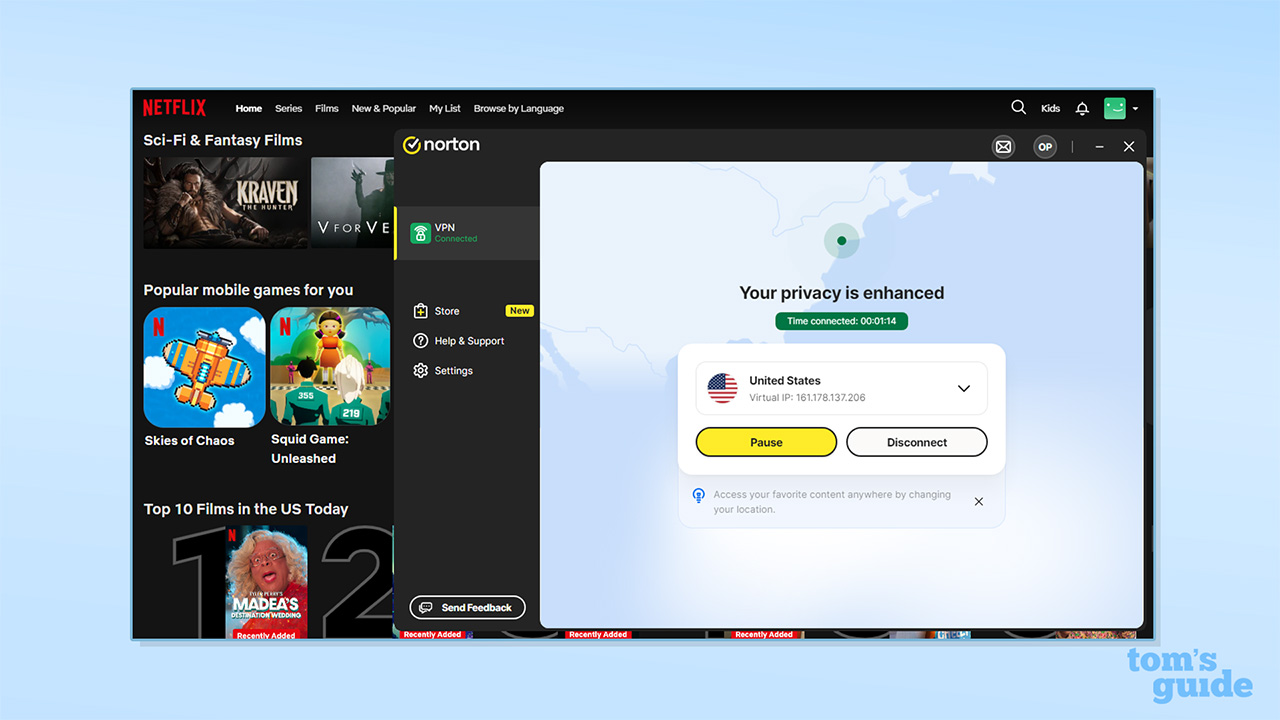
There are no specially optimized streaming servers with Norton, but you should be able to unblock content from any location. In my testing, I found Norton allowed me to access Disney+ and Netflix libraries for the US, the UK, Australia, Canada, and Japan. In addition, I was able to access geo-restricted local services, such as the BBC iPlayer, ITV, Channel 4, 7plus, and 9Now.
Many leading VPNs have failed to unblock US Amazon Prime Video in our latest testing, and Norton VPN is one of them. This is disappointing but Norton VPN isn't alone here. Only NordVPN, CyberGhost, and Proton VPN unblocked the service.
Norton VPN failed our test for US YouTube, though, in which I attempted to access the Formula 1 channel without being logged in. In separate testing, though, I found that US YouTube issued captchas and blocked me from viewing FIBA basketball live streams while logged in on the site. As with Amazon Prime Video, Norton VPN isn't the only VPN to fail our US YouTube test.
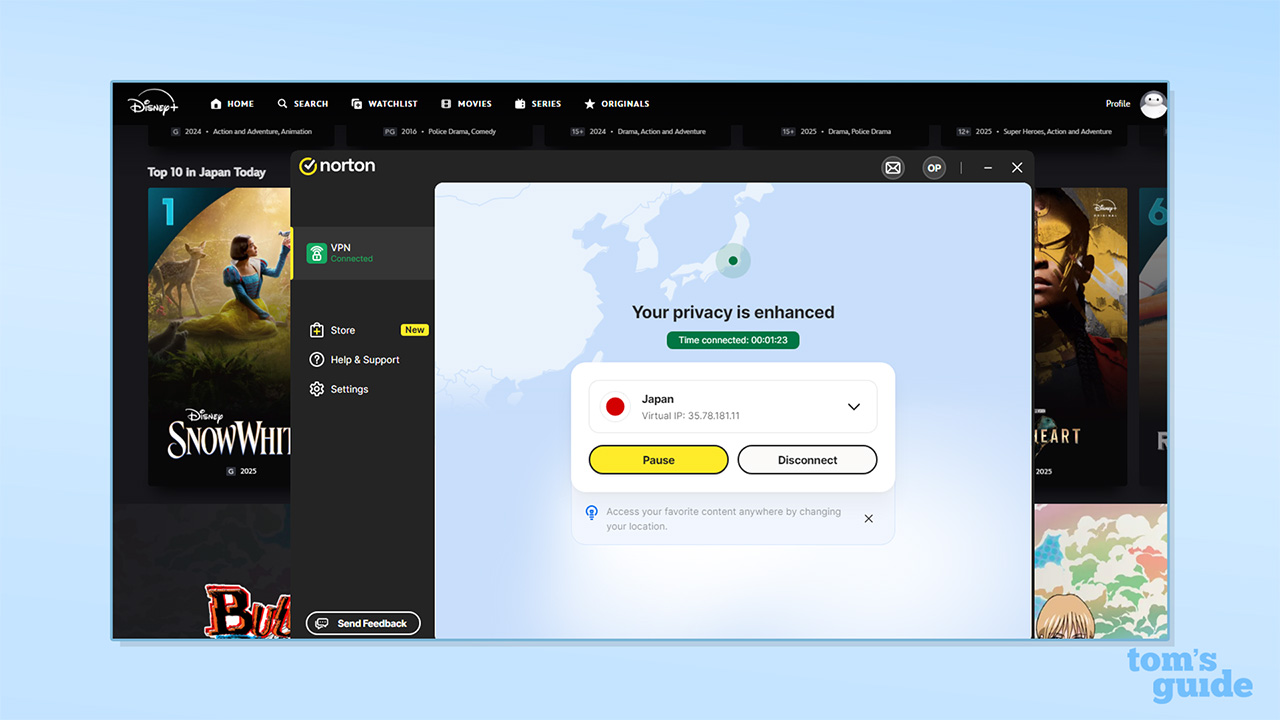
When it comes to torrenting, Norton has five P2P-optimized servers – located in New York, San Jose, Madrid, Sydney, and Tokyo. This is an increase on the two previously offered. These were Dallas and Amsterdam but Norton VPN's website no longer lists these servers as P2P-optimized. This offering is a little disappointing, especially when Avast’s SecureLine VPN (also within the Gen Digital stable) has eight.
The option is easy to find, though, and P2P users on Windows will appreciate the option to auto-connect the VPN when launching supported apps such as Deluge, Azureus, uTorrent, and BitTorrent. One drawback for torrenting, though, is that Norton VPN doesn’t offer port forwarding, which can make torrenting faster and smoother. During my testing, torrenting only worked when I accessed Norton’s P2P-optimized servers, suggesting that the platform is funneling users towards these servers.
We spoke to Norton about the details of its P2P servers, and our contact said: "on Windows, if the user was auto-connected to a "normal" VPN region, it will switch to the P2P optimized region upon detecting the P2P client. However, if the user manually enabled the VPN, we don't automatically switch to the P2P optimized region. On macOS, auto-connect for P2P isn't currently supported, but a P2P optimized region is available from the drop-down.
Overall, Norton puts in an impressive display all round – but slight bugs when streaming and some limitations with its torrenting servers do hold it back from getting top marks.
Score: 8/10
Norton VPN review: connection speeds
Norton VPN fared very well in my hands-on speed testing, and its performance exceeds almost all the top providers on the market. Only Mullvad VPN has recorded faster speeds in our latest round of testing. It’s also fast to get started: in my testing, I found I could connect to servers in the US or Japan from the UK in under four seconds.
Using a VPN will always reduce your internet speed, as your data is routed through a remote VPN server. The precise impact will depend on the VPN protocol you use, the server you connect to, and the level of traffic hitting the server. Given this, we run speed tests in the morning and evening for our local time and test multiple protocols on multiple server locations. For further details on our testing methodology, you can read our full guide to how we test VPNs.
Protocol | Dublin-UK server speed (Mbps) | Dublin-US server speed (Mbps) |
|---|---|---|
Average WireGuard speed | 1,752 | 739 |
Average OpenVPN | 1,018 | 909 |
In my testing, I saw an average WireGuard connection speed of 1,752 Mbps for a local encrypted connection and 739 Mbps for a Dublin-US connection. This puts Norton VPN almost at the top of the pile. Approximately 100 Mbps separated Norton VPN and its nearest challenger, Surfshark.
I recorded 96% speed retention across uploads and downloads with a local connection (as measured by the Speedtest.net online tool), and 83% download speeds for a UK-US connection.
For context, you need around 25Mbps to stream Netflix in 4K and around 100Mbps for multi-player gaming, so these speeds are more than enough for most households. Latency (the delay with which information reaches your device) is critical for gaming, and we saw good figures across our testing results, putting Norton among the best providers on the market.
When I tested the OpenVPN protocol (which is more secure than WireGuard but slower), Norton achieved a 1,018 Mbps local connection and 909 Mbps for a Dublin-US connection. This is exceptionally quick for OpenVPN and puts it ahead of top providers like NordVPN, Surfshark, and ProtonVPN. ExpressVPN just pipped Norton VPN in our testing by 20 Mbps on the local connection but Norton VPN was 100 Mbps faster on the US connection.
Norton VPN launched an OpenVPN DCO in summer 2025. It claimed to double OpenVPN speeds and seems to have had the desired effect.
Rating: 9/10
Norton VPN review: privacy and security
Feature | Status | Notes |
|---|---|---|
No-logs policy | Present, audited. | Last audited June-August 2025. Policy notes some non-identifying connection metadata is logged. |
Server infrastructure | Primarily physical servers | Infrastructure processes were inspected as part of the August 2025 privacy audit. No mention of RAM-only servers. |
Standard encryption | AES-256-GCM (OpenVPN); | Industry standard, confirmed via log inspection during testing. |
Post-quantum encryption | Available via Mimic protocol only. | Uses CRYSTAL-Kyber-512. Not available on OpenVPN or WireGuard. |
Open source | No. | The apps are proprietary and closed-source. |
Kill switch | Windows, macOS, Android, iOS. | Performed well across all platforms in testing, with no variations noted. |
Transparency report | Yes, quarterly. | Details government data requests and the inability to comply due to the no-logs policy. |
Overall, Norton does a solid job when it comes to security. The VPN has an audited no-logs policy and a transparency report, with a proven commitment not to store or share user data. This means that it’s not that great a concern that the company is co-headquartered in the US, though this theoretically exposes it to the Five Eyes intelligence-sharing alliance.
In addition, Norton offers security features like a kill switch, multi-hop connections, IP rotation, and a stealth protocol (ensuring you aren’t exposed and making it harder to track you or detect that you’re using a VPN), which we’ve tested and found to be effective. I also didn’t see any indication of DNS leaks in my testing of Norton VPN’s services.
While Norton doesn’t offer post-quantum protection on its OpenVPN, WireGuard, or IPSec connections to tackle emerging threats, Mimic reportedly comes out ahead. The proprietary protocol uses AES-256-GCM and ChaCha20-Poly1305 for secure encryption and authentication and CRYSTAL-Kyber-512 for post-quantum key generation.
The future keeps on coming, though, and there’s now a new NIST-recommended standard (ML-KEM), which is already used by ExpressVPN. Norton VPN will hopefully add support for this soon.
Norton’s WireGuard connections use ChaCha20-Poly1305 for encryption and authentication, while OpenVPN uses AES-256-GCM, matching the top providers in the field. When I dug into the logs, I was able to confirm that Norton works as it claims.
Norton VPN's privacy is solid. With industry-standard basics combined with the introduction of cutting-edge tech like post-quantum encryption, it lives up to the reputation of its brand. However, I'd like to see RAM-only servers introduced, as well as a reduction in the amount of non-identifiable data the apps collect.
Mo Harber-Lamond – Tom's Guide VPN Editor
In terms of its no-logs policy, Norton commits not to track your online activity or to sell your data, and the 2025 independent audit by VerSprite confirms this is true. Norton VPN confirmed that a no-logs audit will take place annually.
There are non-identifiable pieces of connection data collected by Norton VPN, but it said it only collects data "that is absolutely critical and essential" and it has made a significant attempt to reduce this.
Connection event data is retained for 12 months (down from 24). This successful and unsuccessful connections. Application event data storage has been cut from 36 to 18 months. This includes app version information and allows Norton VPN to determine when it can cut back support for older app versions.
Connection timestamp data is now recorded as the total number of connections in a 24-hour period. Previously this was minute by minute.
Furthermore, Norton uses third-party analytics tools to monitor app usage. This can be disabled (click "Settings" then "Privacy Policy", and turn "Share App Usage Data" off), but I’d prefer the setting to be turned off by default, so users only send data if they opt in.
Finally, Norton VPN has not transitioned to RAM-only servers. RAM-only servers are wiped upon reboot, meaning that data cannot be stored on them. This is by no means a big red flag, but RAM-only servers are becoming the norm for privacy-focused VPNs nowadays.
Norton VPN has taken great effort to limit the amount of data it collects and should be commended for doing so. There is still some additional privacy and security improvements to be made and I would also like to see improvements with the compatibility of Norton products.
While Norton VPN includes anti-malware features with its mid-tier plan, much like NordVPN and Surfshark, it’s frustrating that Norton VPN requires Norton 360 to be uninstalled for it to run (which I’ll cover in more detail below).
Rating: 8/10
Norton VPN review: apps
Operating system / browser | Norton VPN support | Download via |
|---|---|---|
Windows | ✅ | Website |
Mac | ✅ | Website |
Android | ✅ | Google Play Store |
iPhone | ✅ | App Store |
Linux | ⛔ | No support |
Amazon Fire TV Stick | ⛔ | No support |
Android TV | ✅ | Google Play Store |
Apple TV | ✅ | App Store |
Router | ⛔ | No manual setup |
Chrome | ✅ | Chrome Web Store |
Edge | ✅ | Microsoft Edge Add-ons |
Firefox | ✅ | Firefox Browser Add-ons |
Norton VPN's apps are generally consistent across operating systems, and they're easy to install and get started with. The interface is very clean, and the settings are laid out clearly and logically.
There are some differences in functionality between the apps, though. The Mac and iOS apps don’t support OpenVPN and/or WireGuard, and they don’t get split tunneling.
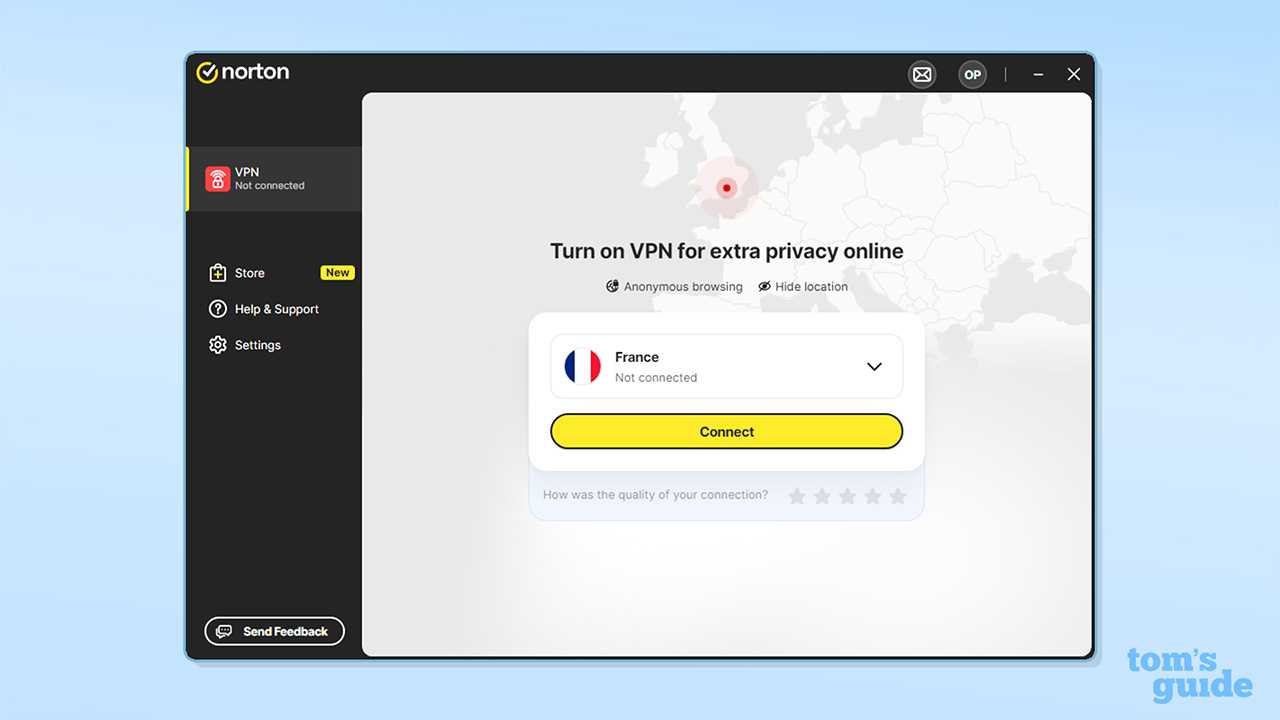
The browser extensions, meanwhile, really work as remote controls for the full Norton VPN app, and don’t open a separate proxy connection for your browser. ExpressVPN’s browser extensions work in the same way, but it’s a fairly unusual implementation. That said, they make it much faster to switch servers and manage your connection when browsing.
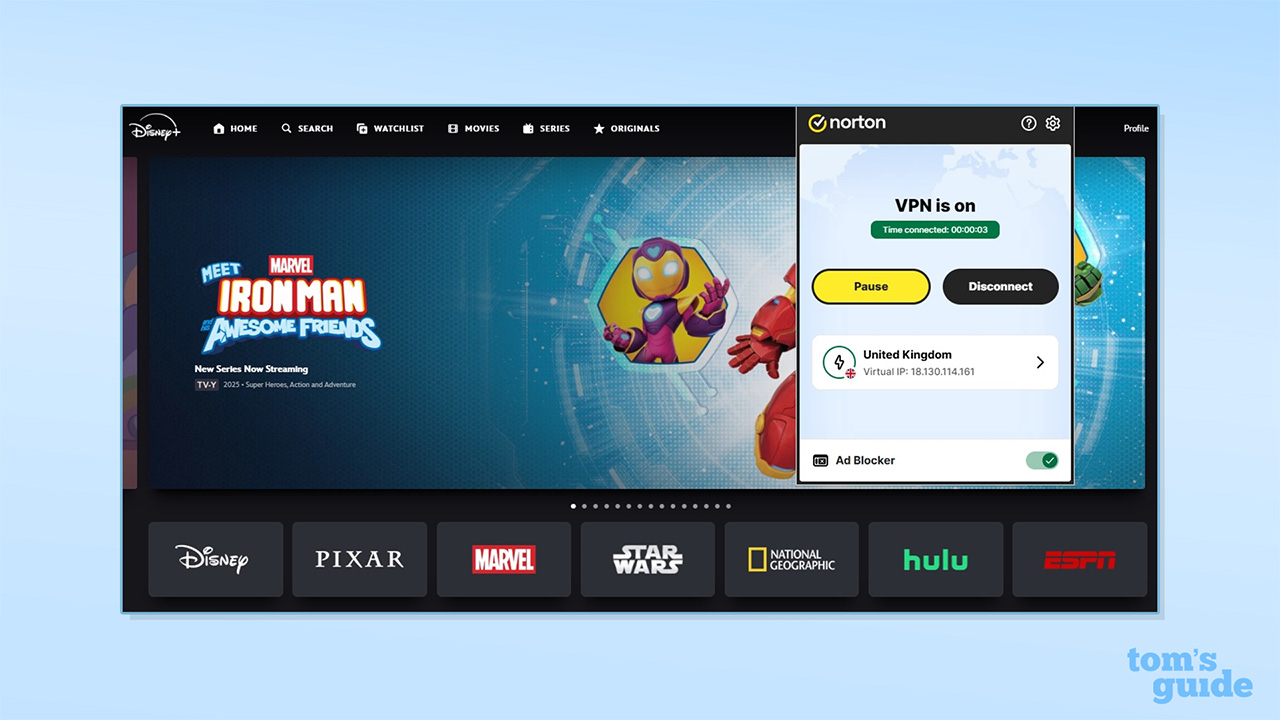
As a bonus feature, the browser extensions include an ad blocker. I tested it, and Norton scored a reasonable 77%, which is good but not exceptional. In comparison, the free uBlock Origin Lite scored 91%. There’s hence no harm in having Norton’s ad blocker, but it doesn’t add a lot of value.
Unlike most of its competitors, Norton VPN doesn’t offer a Linux app, and there aren’t Amazon Fire TV or Roku apps, either. In addition, Norton hasn’t provided OpenVPN or WireGuard configuration files, so you can’t set up unsupported platforms manually, such as routers, third-party VPN clients, or older hardware. This will be a major downside for technical users looking to make flexible use of the VPN.
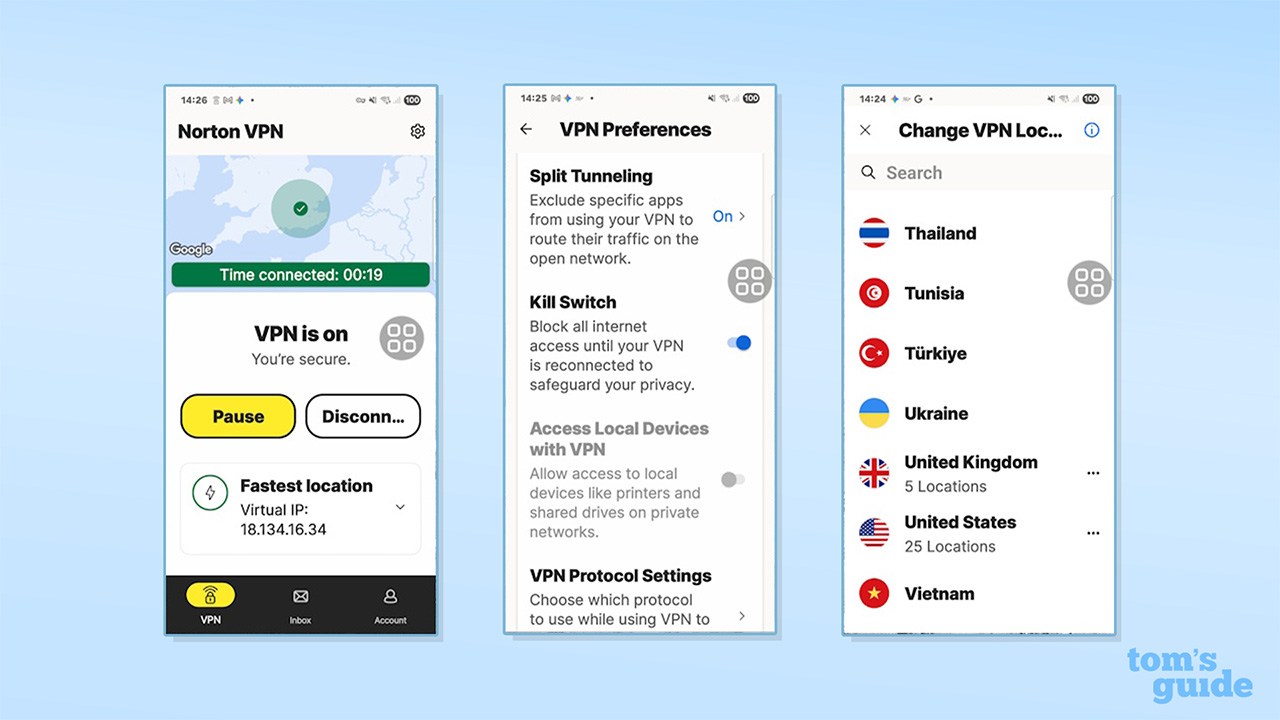
The VPN gets generally positive scores for its apps. The Android app rates 4.5/5 on Google Play, putting it above average, while the iOS app rates 4.3/5 on the App Store, putting it slightly below the 4.5/5 average for VPN apps on the platform.
A significant caveat, though, is that most of Norton’s ratings are based on its older, far more basic VPN, and it will take time for users’ feelings about the upgraded service to trickle through.
Overall, the apps that are available are well made and fairly easy to use. However, the lack of support for more "niche" devices, and limitations on Mac mean this is one area it falls some way behind the competition.
Score: 7/10
Norton VPN review: ease of use
Feature | Status | Notes |
|---|---|---|
One-click connect | Yes | A large, central "Connect" button is easy to find. Connection times are very fast (1-2 seconds). |
List of server locations | Yes | Easy to access but lacks advanced features like ping times or a favorites system. Shows recent connections. |
Automatic best server choice | No | The app does not have an explicit "Fastest Server" or "Quick Connect" option. |
Range of apps | Fair selection | Covers all major desktop and mobile platforms and browsers, but no support for Linux, Amazon Fire TV, or routers. |
Setup | Simple on all devices | Standard installation process, although official setup guides are basic. |
Language support | Yes, 26 languages | More languages than most VPNs. |
Keyboard accessibility | Yes (Windows only) | The Windows app can be fully controlled via keyboard commands – an accessibility feature lacking in most VPNs. |
In-app marketing | Noticeable on Windows | The Windows app attempts to upsell other Norton products, cluttering the interface. |
I installed Norton VPN on Windows, Mac, Android, and iOS devices, and for the most part, setup ran smoothly on every platform. Annoyingly, though, Norton VPN required me to remove Norton 360 on Windows to install the VPN. This is particularly problematic as the Norton VPN Standard plan doesn’t include any antivirus features.
If you run into problems during setup, Norton has some installation guides, but they’re surprisingly basic. The Windows tutorial guide is text-only, under 120 words long, and doesn’t go into a lot of detail. NordVPN and ExpressVPN’s setup guides are two to three times as long and include screenshots and tips to help you solve common problems.
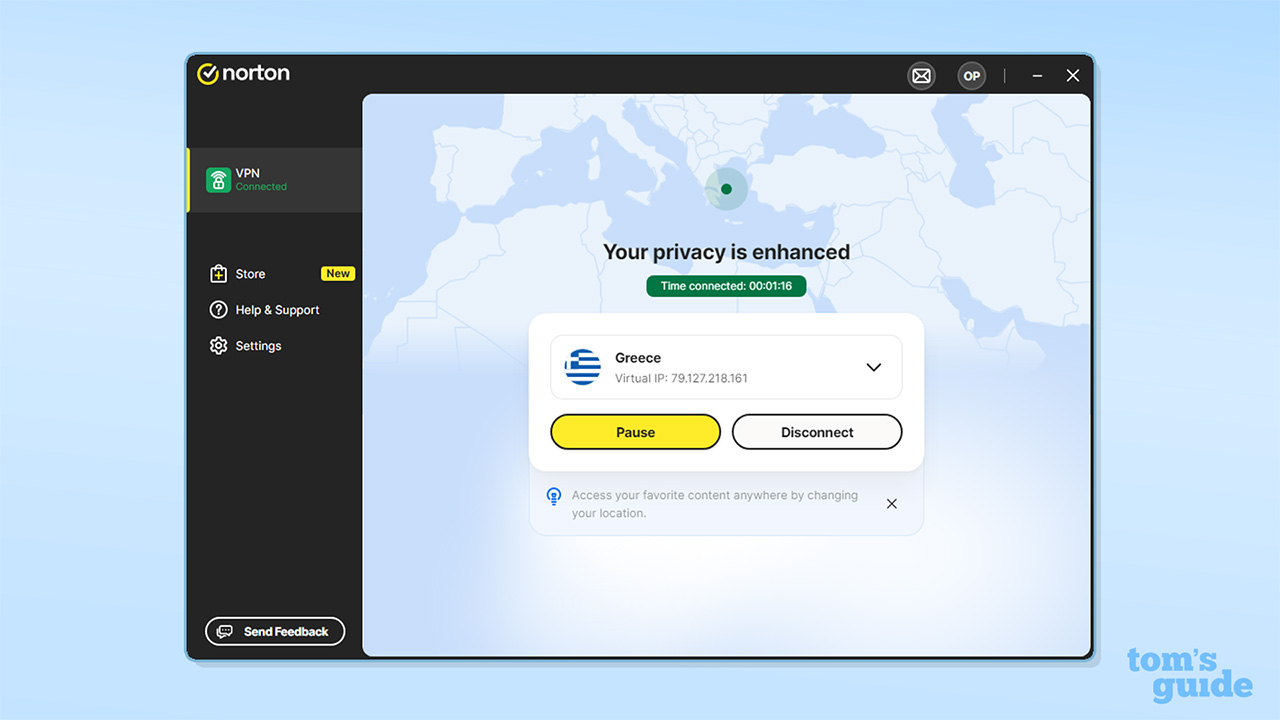
In terms of its layout, Norton VPN has a light, clear, uncluttered user interface. It’s very simple to connect with the app’s default settings, and it’s equally easy to find the various configuration options in the settings menu.
The location list is easy to use, but it doesn’t have any extras. There’s no information on load or ping times for locations, for example, which makes it more difficult to find the best options for you, and there’s no ability to sort locations or save favorites (though the app does list your five most recent connections).
Once you’ve used one version of Norton VPN, you’ll be able to quickly find your way around all the others. The mobile apps also cut non-essential elements, giving them a cleaner look and making them very easy to use. As noted before, some labeling is inconsistent between platforms, which could be a source of confusion, but this is likely to be ironed out in future.

The Windows app also tries a little too hard to upsell you. There’s a Store link in the (fairly sparse) sidebar, and in some versions, there are also pages for Norton’s Dark Web Monitoring and Parental Controls features, even if they require a purchase or upgrade to be enabled. I expect marketing with free VPNs, but when you’ve bought a service, you don’t anticipate quite so many in-app efforts to persuade you to spend more.
Norton VPN connected quickly throughout my testing, with a delay of under four seconds between hitting "Connect" and having the VPN live with either WireGuard or OpenVPN. That’s a great result, as many top VPNs leave you waiting for six seconds or longer for OpenVPN to connect.
The VPN scores well for accessibility, with keyboard support that allows Windows users to connect, disconnect, choose locations, and tweak settings with keypresses. This can take some time, but it works, which is more than can be said for most Windows VPN apps. Norton VPN also supports an above-average 26 languages. They aren’t included by default, but you can add and use them with a couple of clicks.
Rating: 8/10
Why is Norton VPN based in the US?
Norton is owned by Gen Digital, which is co-headquartered in the United States and Czechia. This means that it falls under the jurisdiction of the US, which is part of the Five Eyes group of intelligence-sharing nations. In comparison, NordVPN is registered in Panama, which has a strict set of data privacy regulations.
However, Norton VPN's no-logs policy means the company commits not to store or share user data, and the fact that it has been audited means its security and privacy claims have been put to the test.
Norton VPN now also has a Transparency Report, which is updated four times a year. This counts the number of National Security Letters, government warrants, search orders, and subpoenas issued to the company and states it is unable to comply with them, as it cannot provide any of the requested information.
Norton VPN review: reputation
Norton VPN has a lot of credibility, with an audited no-logs policy (committing not to store or share user data), a Transparency Report (stating that the firm is unable to comply with data requests), and a brand that goes back to the 1980s.
It’s also worth noting here that Norton and Avast (which is part of the same group) have more VPN experience than you might realise.
Norton launched its first VPN, Norton WiFi Privacy (later Norton Secure VPN) in 2017, while the Avast SecureLine VPN was introduced in 2013. This means that Avast has been in the VPN business longer than Surfshark (launched in 2018), Proton VPN (2017), and Windscribe (2016).
In recent months, Gen Digital has been making significant improvements to Norton VPN, including the addition of double VPN functionality (passing your connection through an additional VPN server) and an IP rotation feature (which periodically changes your IP address, making you harder to track).
Clearly, the Norton brand carries a lot of weight, and for good reason. It has a largely unblemished history, and the VPN is more established than you might think.
Mo Harber-Lamond
Norton VPN published its second independent privacy audit in October 2025, following an assessment between June-August 2025. This comprehensive inspection found Norton VPN's privacy risks were "none" and that its setup was consistent with the firm’s no-logs policy.
The audit did identify two potential privacy concerns, but this isn’t unusual, and they were immediately addressed and resolved. Norton provided an Executive Summary Report on the audit’s results, meanwhile, which is better than many competitors but not as good as ExpressVPN, which offers in-depth, annotated audit reports.
Historically, Norton’s VPN has been something of an afterthought, and it didn’t compare favorably with the capabilities of leading competitors. While Norton has an “Excellent” 4.6/5 rating on TrustPilot, based on user reviews, the VPN product doesn’t have its own profile. On G2, however, the product gets a strong rating of 4.2/5, while Capterra gives it 4.4/5. In comparison, NordLayer/NordVPN gets 4.3/5 and 4.6/5, respectively, while Surfshark gets 3.9/5 and 4.5/5.
Rating: 9/10
Norton VPN review: customer support
Support option | Our experience | Rating |
|---|---|---|
Live chat | Very fast to respond (under 2 minutes) and helpful. Agents are knowledgeable and friendly. | 9/10 |
Telephone support | Available 24/7, which is a big plus. Remote access support is also available. | 9/10 |
Support site / AI chat | Good for simple questions, but AI agent fails on more complex topics thanks to gaps in the source articles. | 7/10 |
Written support | The knowledge base has significant gaps and the setup guides are pretty basic. | 6/10 |
Community forum | Available but very quiet, with posts sometimes going unanswered. | 3/10 |
Norton offers help via a support site, a community forum, 24/7 live chat, and 24/7 phone support – something that even providers like NordVPN and Surfshark don’t offer.
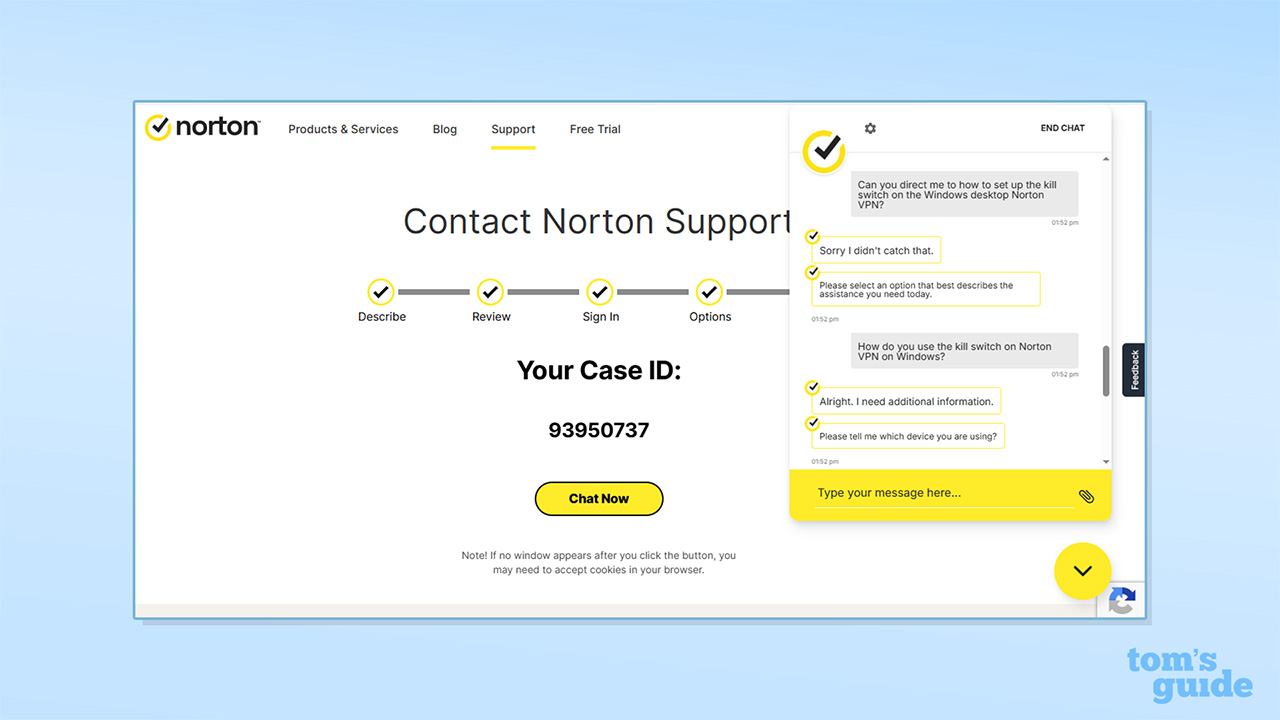
The support chatbot is acceptable, but it isn’t perfect. For example, I discovered that it doesn’t seem to understand that the Mimic stealth protocol uses obfuscation (making encrypted data look like regular web traffic) or that this would be recommended for regions with restrictive internet policies. Equally, it wasn’t able to help with finding the kill switch or whether Norton VPN works on routers. If you want to escalate an issue, you can talk to a human operator or get phone support, however.
I opened a test live chat session, and an agent arrived in a couple of minutes. The agent was friendly, knowledgeable, and provided sensible suggestions for my problem. You can also give Norton agents remote access to desktop systems. In the past, I’ve found Norton’s support agent to be impressive, demonstrating expertise and commitment to solving problems (spending almost an hour on my issue in one case).
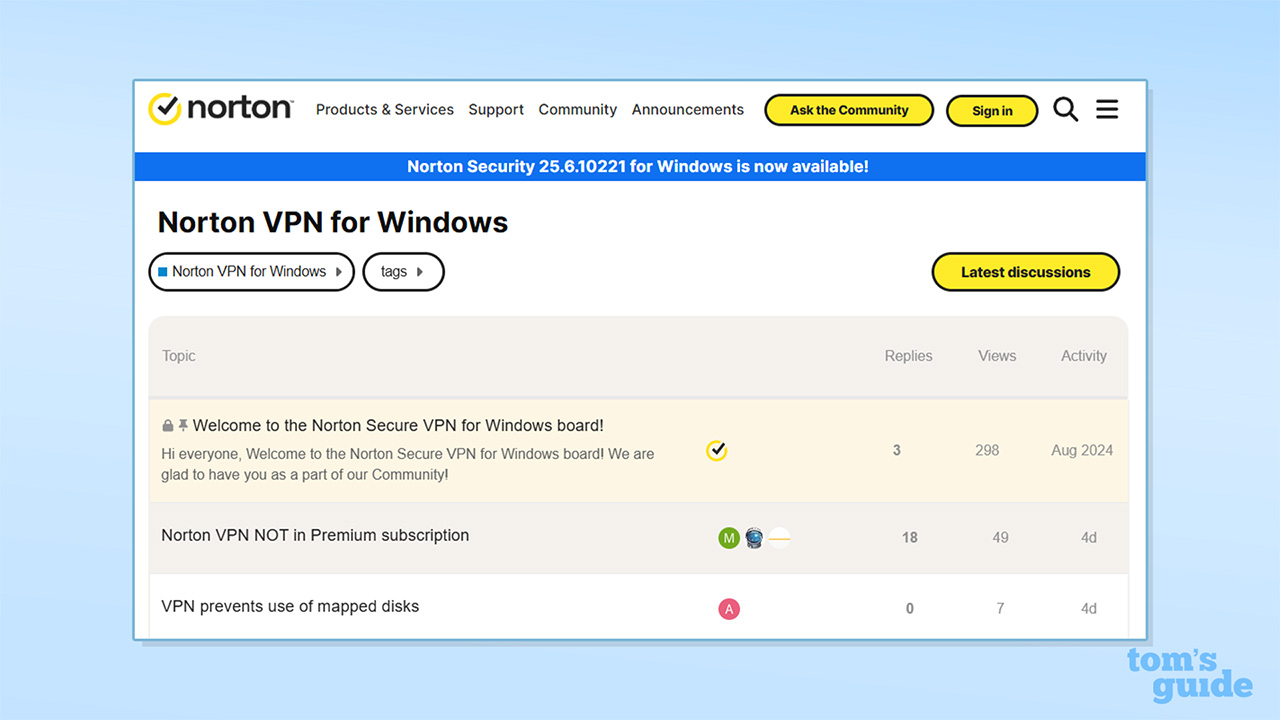
The community forum is a nice addition, but it’s fairly quiet. Only a handful of questions are posted each month at present, and the community isn’t even replying to all of these. There’s also a substantial knowledge base. As noted earlier, though, having additional detail, as well as illustrations and video tutorials, would make the guides a lot more useful.
Rating: 8/10
Norton VPN review: final verdict
Norton VPN: Much improved, and challenges the established names
Norton VPN is a huge step forward for the antivirus provider. It offers fast, secure connections and solid unblocking capabilities, making it a good VPN for streaming, torrenting, gaming, and browsing the internet securely.
I found Norton VPN’s apps easy to use, and the addition of advanced security features means you can be confident that your privacy is being protected. Customer support is also impressive and speaks to the substantial resources available from the security giant.
Norton VPN's pricing is competitive, putting it in line with or ahead of some of the best products on the market. However, while new features are coming out frequently, there are quite a few areas for improvement.
To compete with the likes of NordVPN, Surfshark, and ExpressVPN, I would like to see a broader global server network, upgrades to the IP rotation and double VPN features, and improvements to the VPN’s Mac and iOS apps.
Final rating: 81/100
Subscribe if:
✅ You want a quality VPN from a trusted security brand. Norton is one of the most established names in antivirus and digital security, and this gives its VPN some serious pedigree.
✅ You value fast connection speeds. In my tests, Norton VPN delivered speeds that were right up there with the very fastest VPNs.
✅ You want apps that are both easy to use and support advanced features. Auto-connect, IP rotation, a tracker blocker and multi-hop are just a few of Norton's wide range of additional privacy features.
Don't subscribe if:
❌ You're an Apple loyalist. If you use Apple devices, Norton VPN misses out too many features on iOS and macOS to justify choosing it over alternatives.
❌ You need lots of simultaneous connections. Norton VPN measures your usage by devices rather than connections, with 10 or 20 on offer. While this isn't small, other providers limit you only by simultaneous connections. Compared to the likes of Surfshark and Private Internet Access which impose no device limits at all, this seems stingy from Norton.
Alternatives to Norton VPN
NordVPN: our top pick overall
NordVPN takes the top spot in our guide to the best VPN services thanks to an unrivaled suite of privacy and security tools, cutting edge VPN protocols, great unblocking ability for streaming and a huge network of super-fast servers all around the world. What's more, it works out cheaper than Norton VPN if you sign up to the multi-year plan – but be aware of massive price hikes when you renew.
ExpressVPN: the best VPN for beginners
ExpressVPN is perfect for people who are new to VPNs, and if you're looking for VPN apps that are very simple and incredibly reliable, it's probably a better choice than Norton VPN. It's great for streaming, its privacy credentials are all fully audited, and it's also great on mobile.
Surfshark: the best cheap VPN
Surfshark is an excellent VPN, and it’s tough to beat, offering support for unlimited simultaneous connections and a huge range of devices at an affordable price. Norton VPN does stand out, though, for its proprietary Mimic stealth protocol and the availability of phone support.
Norton VPN review: FAQ
How to cancel Norton VPN
Following the expiration of your two-year plan, Norton VPN is billed annually. To cancel, you need to stop your auto-renewal. This takes a couple of steps, but the process is simple and can be completed without a phone call. To cancel, go to your Norton account, and on the "My Account" page, go to the "My Subscriptions" tab. Next, click "Cancel Subscription Renewal", and then "Cancel Now". You can also delete your billing information to ensure you aren’t billed.
Does Norton VPN work in China?
Norton has stated that its products are "temporarily" unavailable in China, and users have reported that they’re unable to activate the VPN in the country. Norton VPN also doesn’t have any servers for China, so it can’t be used to obtain a Chinese IP address. All this means that Norton VPN isn’t a good option for China.
Who owns Norton VPN?
Norton VPN is owned by Gen Digital, which also owns the Avast, Avira, AVG, LifeLock, and Norton AntiVirus security brands. The company is headquartered in Prague and Tempe, Arizona, and took its current form after NortonLifeLock merged with Avast in 2022. The brands continue to be run as separate companies with their own ranges but are working on combining the best of their offerings into new products, like Norton VPN.
How we test VPNs
I test VPNs using a number of methods – you can find the details in my how we test VPNs article.
The quick version is that after studying any published information about the VPN's privacy – no-logs policies and independent audits, for example – I install each VPN I test on a variety of devices and put it through a series of rigorous tests.
This include over 100 speed tests per provider, kill switch tests, in which I try my best to force the VPN to expose my real Ip address, and a ton of streaming testing.
The whole Tom's Guide VPN team pitches in too, and the unique insights each person brings helps make our VPN reviews well-rounded and as helpful as possible.
We test and review VPN services in the context of legal recreational uses. For example: 1. Accessing a service from another country (subject to the terms and conditions of that service). 2. Protecting your online security and strengthening your online privacy when abroad. We do not support or condone the illegal or malicious use of VPN services. Consuming pirated content that is paid-for is neither endorsed nor approved by Future Publishing.

Michael is an experienced technology writer, specialising in VPNs, antiviruses, and cybersecurity. Previously, he has written for publications including Techopedia, The Guardian, and Digital Spy and has worked with numerous tech firms in the SaaS space. Outside of work, Michael’s interests include cult TV, gamification, and behavioural economics.
- Mo Harber-LamondVPN Editor
You must confirm your public display name before commenting
Please logout and then login again, you will then be prompted to enter your display name.
